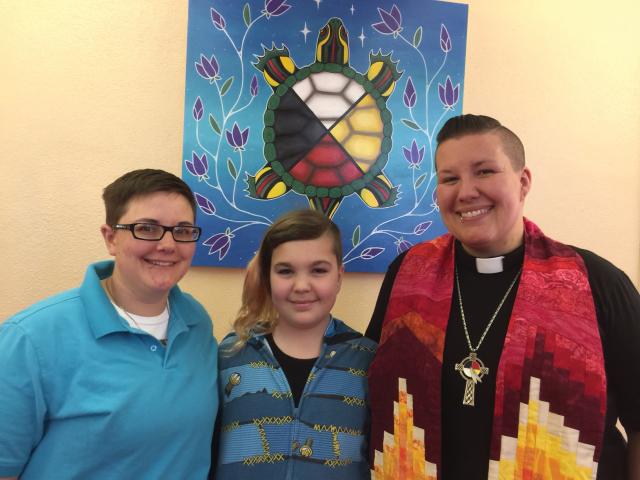Breaking the cycle of the Sixties Scoop

Growing up in Southwestern Ontario, I always knew that I had been adopted and I took pride in that. My parents assured me that they loved me so much that they had chosen me! What could be better? I felt lucky. I was raised by two loving parents who taught me that I could grow up to be anything I wanted to be. But it was in growing up and going into ministry that taught me there was a lot more to my adoption than just being picked by two people I now call mom and dad.
You see, my birth mom had three children and I was put up for adoption. She decided to raise my birth sister. As for my birth brother, he was apprehended as a baby and I’m told it was because my birth mom was unmarried and therefore, wasn’t deemed able to raise him. My story isn’t unique – in our community we know this happened a lot to Indigenous babies born between the 1950s and 1980s. I know the pain my birth mom must have felt because I experienced it firsthand when I had my own child at 15 years old. She was taken from me and I lost custody of her. And the cycle didn’t end there. When my daughter’s second son was born, she received an alert from Native Child and Family Services letting her know that her baby was going to be apprehend on her due date. We were able as a family to act quickly and not only avoid the baby being apprehended, but also provide the necessary supports to ensure that our daughter could confidently raise her son. We were determined to do something because we couldn’t lose another family member into the child welfare system. We needed to break the cycle of the Sixties Scoop.
The Sixties Scoop, as it’s commonly known, has been in the news lately. Starting in the 1950s, it was a policy that lasted up until 1985 which allowed child welfare workers to literally scoop up children from Indigenous parents and adopt them out to non-Indigenous families. As many as 60,000 children were scooped, with children being sent for adoption to families in the United States and overseas.
These children were raised with no connection to their Indigenous cultures, languages, or spiritualties. Not only did this break in connection cause pain and trauma, but often survivors of the Sixties Scoop were also raised in abusive homes. When they grew up to be adults, many had trouble fitting back into Indigenous communities, often feeling like an outsider.
I was lucky to have a loving family. But despite that, I know the pain of feeling separated from a community and culture that is such a deep part of who I am.
Right now in Canada, Indigenous children make up the majority of kids who are in foster care, most still in non-Indigenous families. So for my ministry I decided that I would use my own experience to create Daamishkooziimin (“We Are Strong” in Anishinaabemowin/Ojibwe), a healing circle for Indigenous adoptees and Sixties Scoop survivors. For three years we have met and shared our pain, grown in our resilience. We have helped each other on our healing paths. Through cultural teachings and working with Elders and knowledge-keepers, we have been able to prove that indeed we are strong. And not only are we strong, but we have recognised that as we draw deeper into our personal and collective healing, we are better able to act as advocates for children and families that are struggling to survive and thrive.
Through the Daamishkooziimin program featured in this year’s Gifts with Vision catalogue, we are able to ensure that our participants, many of whom are earning a low income, are able to attend the circles by providing them with transit tokens. It also enables us to provide support to knowledge-keepers and to buy supplies for cultural workshops on topics such as drum making and how to make medicine bags.
Through my own personal experience as an adoptee, as well as an advocate for my grandson, that I know that we as Indigenous people can begin to break the cycles of child apprehensions. Hopefully soon we’ll be able to imagine a time when the cycle of child apprehensions will be viewed as rare instead of normal.
Healing helps. On behalf of my family, and so many families of Indigenous heritage, thank you for your support on GivingTuesday and throughout the holiday season. Miigwetch.
Rev. Evan Smith is with the Toronto Urban Native Ministry and will be one of the guests for our Giving Tuesday event on Tuesday, November 28. If you’re in Toronto, join us at the General Council Office. Otherwise, join us on Facebook Live at 10:00 a.m. Eastern Time.